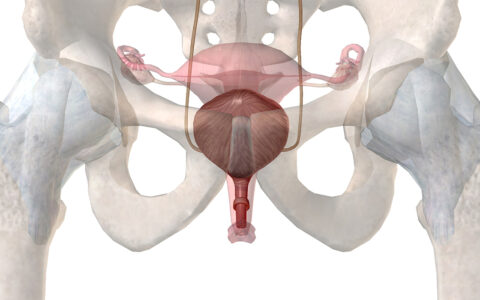Annual FDA approvals for new drugs have hit record highs, but the steady flow is of limited benefit to pregnant women. Clinical trials supporting approvals rarely include pregnant women for ethical reasons. Teratogenicity studies are often a post-approval afterthought.
“For most drugs, there simply aren’t data related to safe use during pregnancy, even for pregnancy-related conditions like gestational diabetes or preeclampsia,” said David Aronoff, M.D., director of the Preventing Adverse Pregnancy Outcomes and Prematurity (Pre3) Initiative at Vanderbilt University Medical Center.
“Use of medications during pregnancy can be confusing for prescribers, and it can feel like a data-free zone regarding what is truly safe.”
“Pregnancy has long been a ‘third rail’ in drug development,” Aronoff said. “Use of medications during pregnancy can be confusing for prescribers, and it can feel like a data-free zone regarding what is truly safe.”
Exploring Other Options
Circumventing clinical trials, Aronoff and colleagues are using computer-based approaches to identify drugs that can be prescribed safely to pregnant women. They are leveraging structural drug data available from the FDA and patient records to develop drug safety profiles.
Computer algorithms can help the team find drugs—including drugs that could be repurposed—to safely treat women who are pregnant, breastfeeding or considering pregnancy. Last year, Aronoff and collaborators from the Vanderbilt Institute for Clinical and Translational Research published strategies to use big data for drug repurposing in maternal-child health. The next step is to take their computer-based approaches one step further in a project called MADRE (Modeling Adverse Drug Reactions in Embryos).
Identifying Safe Structures
“MADRE has two main arms,” said Anup Challa, MADRE’s principal investigator and a Vanderbilt student working simultaneously on bachelor’s and master’s degrees in chemical engineering. “First, we are using quantitative structure activity relationship—QSAR—modeling to analyze the relationships between the structures of drugs prescribed to pregnant women and adverse outcomes in their newborns.”
The approach employs machine learning and artificial intelligence to connect structural elements to reports of fetal toxicity and adverse reactions. Results can suggest a specific chemical element on drugs, say a dihydrothiazine ring, may be safer than other modifications.
Explained Challa, “We use these tools to predict adverse outcomes based on available data for drugs and teratogenicity.”
Challa is currently working at the National Center for Advancing Translational Sciences (NCATS) to improve MADRE’s datasets with large-scale experiments. “Every day NCATS tests on the order of a million compounds in high-throughput screening platforms. We can add this real-world biologic data to the datasets we use to train our model,” Challa said.
Incorporating Clinic Data
MADRE’s second arm works similarly to a phenome-wide association study (PheWAS). PheWAS, developed at Vanderbilt, allows researchers to take a phenotype (a clinical outcome, such as billing code information that gives insight into a disease state) and connect it back to genetic variations.
“We’re linking phenotypes to drug exposure. We call it a MedWAS.”
“We are leveraging PheWAS architecture and algorithms, but instead of looking for a genomic root for disease, we’re linking phenotypes to drug exposure.” Challa said. “We call it a MedWAS.”
Benefits for Prescribers
The overall goal of MADRE is to develop data-driven methods for predicting drug teratogenicity, Aronoff said. “One of the promises of this kind of project is the ability to do real-time prediction to guide prescribers caring for women during their reproductive years.”
MADRE’s algorithms could serve as a foundation for decision-making tools in the clinic. The tools could be particularly helpful for providers who care for women of reproductive age but themselves are not obstetricians. “Our predictive tools are in no way a substitute for physician knowledge,” Challa said. “But they are meant to be assistive.”






